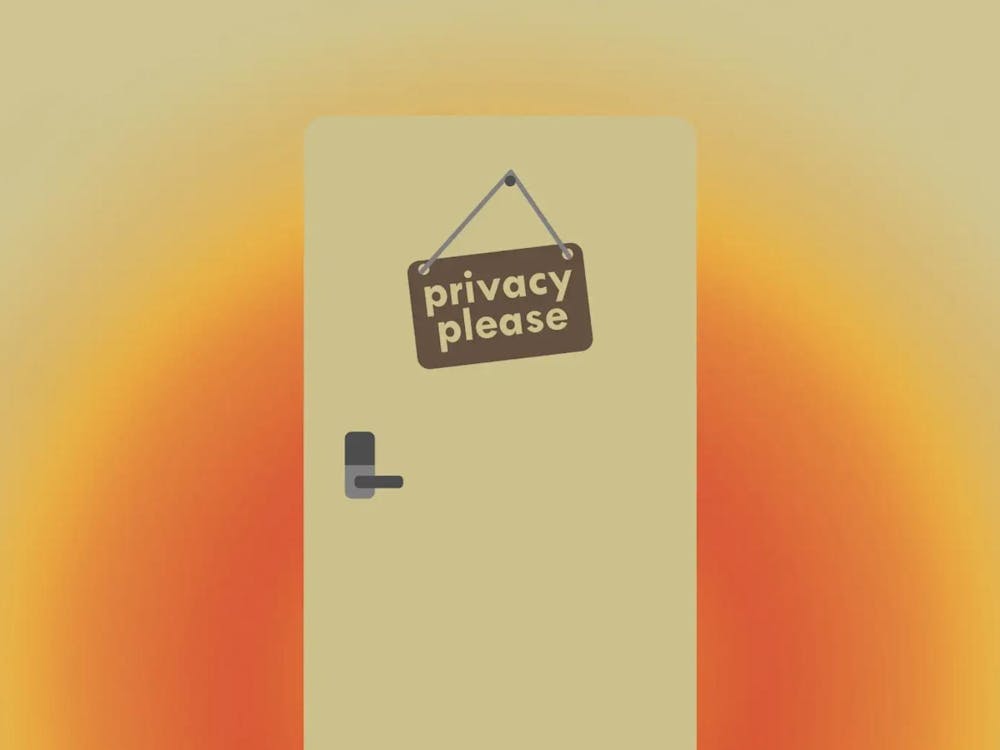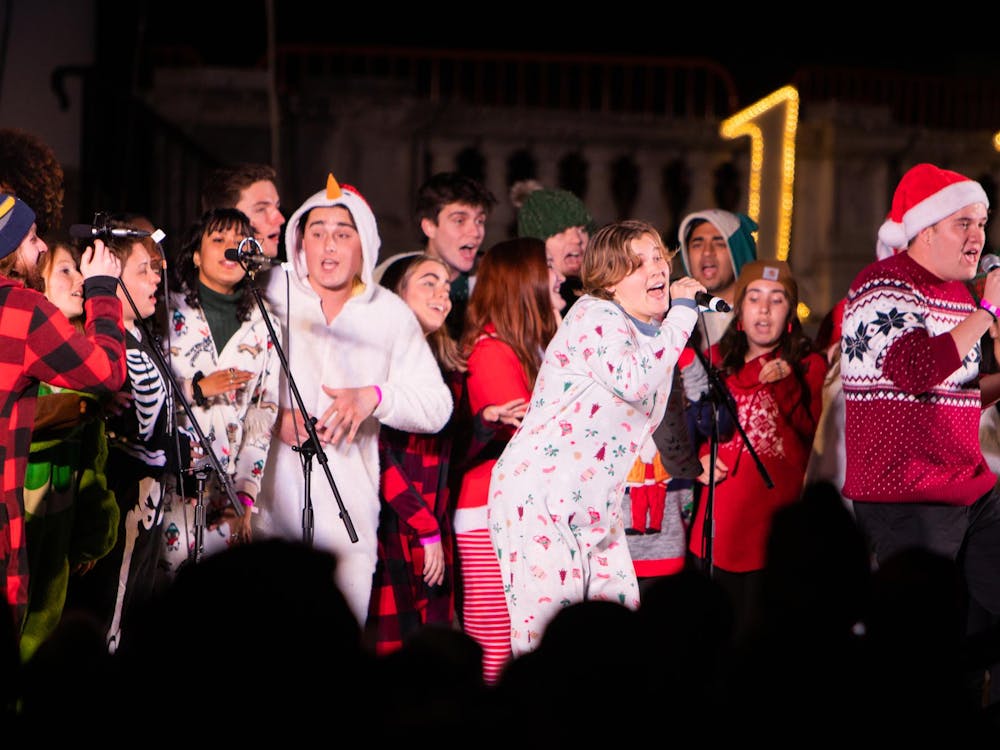First-year Engineering student Jeremy Lynn spends several nights a month hustling through the streets of his native Charlottesville in a large truck. So what do his parents think about their son's choice not to spend those nights in the library or in his dorm room? Actually, his Dad can usually be found driving him.
The father-son pair drive a fire truck and fortunately for the city of Charlottesville and the surrounding areas, their destination is usually one of the about 8,826 fire calls the Charlottesville Fire Department responds to each year.
Along with several other student-volunteer firefighters who balance school and service, Lynn works for the Charlottesville Fire Department. Lynn said he sees this responsibility as nothing short of an honor.
"We run a lot of U.Va. calls, so it's really gratifying to go to a fire call on-Grounds and know that you're giving back to the community," he said.
It's a community that Lynn said has given him much.
"It was always my dream to go to U.Va.," he added.
His father, Michael Lynn, the Assistant Chief of the Volunteer Company, is a little more enthusiastic about fire fighting than his wife.
"My wife has asked me a couple of times when I'm going to quit," Michael said. "She doesn't want me going in with [Jeremy] because she's scared something will happen to both of us, but then she wants me to go in and look out after him."
Yet his wife has had time to get used to volunteer firefighting in his 20-year career.
"It's something -- once you get it in the blood, it's hard to walk away," Michael Lynn said.
A respect for the fury and power of fire is something that the longtime volunteer thinks all firefighters must have.
"I won't go into a structure fire with a firefighter who says they don't have a fear of fire," he added.
H.D. Cooke, Jr., the long-time Chief of the Charlottesville Volunteer Fire Company, echoed Michael Lynn's sentiments.
"Anytime you go into a building --whether it be a fire or a gas leak, you never know what's going to happen," Cooke said.
All student volunteer firefighters must pass a training course that consists of 135 hours of classroom and applied learning before they are ever allowed to physically fight any fire. Eight University students now volunteer for the Charlottesville company.
Before completing their training, they can ride along and provide outside support to firefighters, as Jeremy Lynn did when he was 17.
"I grew up in the station -- every week I was up here," he said.
One day he hopes his own son can continue the tradition that his father started, he added.
"It's a very honored thing to be a volunteer firefighter," Lynn said. "I would love for this to be a family tradition."
But for right now, Lynn said he sees himself as a student first and a firefighter second -- a notion he also learned from his father.
"I want him to get his degree and then if he wants to be a firefighter as a career -- that's his choice," Michael Lynn said. And the same goes for his daughter who is still in high school. "They've got to be happy in life," he added.
The combination of tragedy and gratitude that accompanies the work of a volunteer firefighter is something that student firefighter Rob Schutt, a first-year Computer Science graduate student, said has made him a better student.
"I feel more grateful for what I have. The more you see people in bad situations, the more grateful you become," Schutt said. "Of course, you get out of it what you put into it."
For students, the amount of time they can put into it often is limited. Schutt said the Charlottesville department understands and works with the schedules of its volunteers.
"Our department does not have requirements that say you have to be down here for a certain week," Schutt said. "It balances out to around four hours a week."
This is often more than enough time to make a huge contribution to the community.
"When you can walk away and say 'Wow I really made a difference in that person's life' it is such an amazing experience," Schutt said.
He most recently had such an experience after rescuing a paraplegic man who had become immobilized in his apartment after food left on the stove filled the apartment with heavy, and potentially deadly, smoke.
Student volunteers from the Charlottesville Fire Company are put in a unique situation because they work side by side with about 80 career firefighters. Many volunteer firefighters work out of smaller stations that consist only of volunteer companies.
According to their web site, however, the Charlottesville Volunteer Fire Company works in conjunction with the career department to provide fire protection service to Charlottesville and the surrounding area.
Bill Purcell, battalion captain and career firefighter, describes the Charlottesville department as very progressive.
"We were told by Gary Briese -- the Director of the International Association of Fire Chiefs -- that out of 40,000 departments we were probably in the top 5 percent," Purcell said.
Not only does the high caliber of the department ensure the safety of Charlottesville residents, but it also translates into an excellent Insurance Service rating of two on a scale of 10 to one. This gives businesses in Charlottesville a better rating on their insurance than if the department had a lower ISO rating. In other words, the department saves businesses and the University money.
The department is also very progressive in terms of its diversity.
"We definitely encourage women and minorities to apply to be volunteer and career firefighters," Battalion Chief Britt Grimm said. "We have more women in terms of percentage, than any other department in the state."
Diversity is just one more attribute that student volunteer firefighters learn from the time they spend in training and serving as firefighters.
After seeing many student firefighters, Michael Lynn says that it gives students an outlet from classes and a place to build friendships that will last a lifetime.
But as his son said, to be a student firefighter you have to set your priorities straight.
"There aren't but 24 hours in a day and you've got to fit everything into that," Jeremy said. "It's made me a better student because I take school a lot more seriously and I really want to succeed in everything I do. You never know what could happen, as you see on many fire calls. You realize life's more important"




